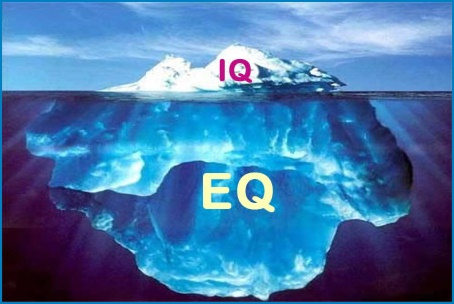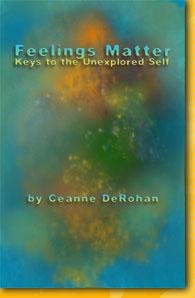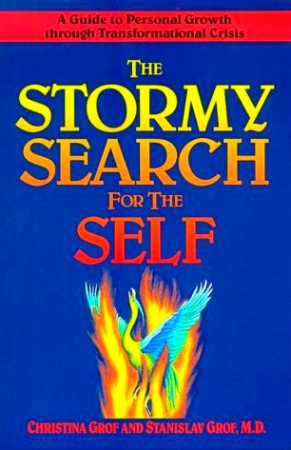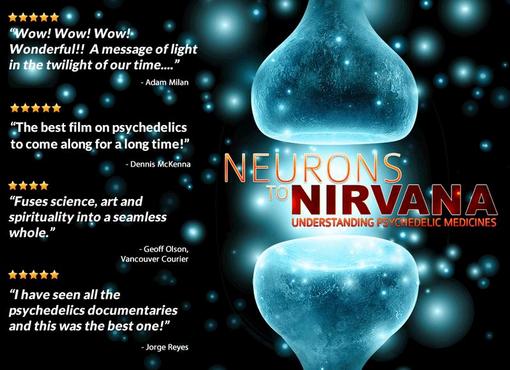EMOTIONAL INTELLIGENCE (EQ)
The Baat School clearly explains the Emotional Intelligence issues on their website. Their focus is on teaching these subjects listed below which would certainly make a vital difference in our evolution as a species. Emotions are the key issue for humanity's shift. If a human's feelings are balanced, almost all of mankind's major issues would change.
- .Emotional intelligence has finally emerged, after many years of struggle by wise teachers who preceded us, as the most scientifically validated advance in understanding the human story. WHY we do things that are destructive is all about the EMOTIONS. Kill your emotions, kill your life.
- It’s not how book smart you are, but how people-smart that makes the difference. Emotional intelligence (EI) is the art and science of understanding how to have honest relationships...first with yourself and then with others. This is the key to being successful in life
and work.
- The present wisdom holds that success in life is 80-90% attributable to emotional intelligence (EQ), and only 10-20% to cognitive intelligence (IQ).
- This means that if you attain more emotional self awareness, this will build self-confidence and personal power, help you manage stress and live more intentionally.
- This is a good personal website for taking a 20 minute test to see how you fall on an Emotional Intelligence Indicator. Emotional intelligence is a set of acquired skills and competencies that predict positive outcomes at home with one’s family, in school, and at work. People who possess these are healthier, less depressed, more productive at work, and have better relationships.
- For Business, this website is a compilation of various resources about Emotional Intelligence in Organizations. It's very complete. It's called the Consortium for Research on Emotional Intelligence in Organizations
But... REMEMBER:
Positive Thinking Alone Does NOT Work
Many charismatic speakers have made a fortune selling ways to remain "positive" regardless of circumstances. While it's true that positive thinking is vitally important to cultivate as a tool for motivating yourself and for coming back to center over and over again, it isn't a magic bullet. In time of true crises, positive thinking alone doesn't resolve real life issues. In fact, remaining positive "despite all" ignores the room-elephants and buries your true emotions, which we need in order to develop determination, persistence, courage, "right-action" and ultimately, wisdom. Rushing back to "feeling good" when your issues remain unresolved, overrides your personal power. Let's get real since it's the only way to thrive.
From the movie, What the Bleep Do We Know: It’s a wonderful idea - positive thinking. But what it usually means is that you have a little smear of positive thinking covering a whole mass of negative thinking. So positive thinking is not really thinking positive. It’s just disguising the negative thinking we actually have.
No, But THIS WORKS.
Being honest with yourself is the Key
Our Subconscious Mind - Why It Controls You If You Don’t Control It
Read this short article. It's easy and clear. Get the picture. Then you can do something about it. You have to if you want to Thrive during these changing times. Be HONEST, not just "positive". How to change your mind
EFT®
The surprising natural healing aid
you can use for almost everything
Emotional Freedom Techniques (EFT) is an emotional, needle free (self-help) version of acupuncture that is based on new discoveries regarding the connection between your body's subtle energies, your emotions, and your health. EFT has been reported successful in thousands of cases covering a huge range of emotional, health and performance issues. It often works where nothing else will.
There are many websites about EFT but this site gives you a free training about how to do this for yourself. (self-help) version of acupuncture that is based on new discoveries regarding the connection between your body's subtle energies, your emotions, and your health. EFT has been reported successful in thousands of cases covering a huge range of emotional, health and performance issues. It often works where nothing else will.
http://www.emofree.com/
Spinning with unanswered questions? Controlled by your out-of-control mind? On edge and feeling far more fearful than you want to talk about with your friends and family? Are you wasting your time analyzing others when you should be focusing on understanding yourself? As you know, the most difficult personal issues for people to handle are, of course, their emotional and psychological realities.
Becoming honest with yourself (and others) is hard as hell, makes a most unpopular conversation and is certainly not taught in school. Nothing, however, absolutely nothing will change on a foundational level in this crazy world if we don't learn to do this difficult work of addressing emotions with respect and the intention to heal.
DownSize to Thrive brings you solid information about accessing your unconscious programming and learning to deal with your denials and most annoying traits. We all have them. So if you want to learn to get through to Your True Self , you have to clear your emotional body to get there.
Just a reminder..... Here's a favorite line from Eckhart Tolle to shift the perspective...... "When you understand who you are (which is the only thing of utmost importance) you will no longer be an "entity with a heavy past who creates a screen of concepts through which every experience is interpreted."
Remember: MOST OF WHAT WE HAVE BEEN TAUGHT IS BULL! Don't forget that and productivity and a life you love will come to you.
Confusion can be great, but sometimes you need to find good guidance. Finding GOOD guidance is a huge issue these days and a major part of the problem is the cost. Professional help costs an arm and a leg. A majority of professionals come from a particular school of training, a certain type of thought process, and are limited by their beliefs, training and ideologies. You have to know yourself quite well to know which type of help is right for you, so a lot of money can be spent finding the right "counsel". For 80% of the population, $ 60.00+ an hour "therapy" (of any type) is out of reach. Unlike the 1980's and 90's, when weekend seminars were overwhelmingly popular, in today's economic environment, very few people have extra time or the expendable income needed to run off to a couples' therapy weekend. The problem is, however, that they need help more than ever to accept the intensity of the chaos and learn to thrive instead of just survive.
To deny, resist and actually destroy ones feelings is the primary issue stopping the world from being an increasingly better place in which to live. Since we live where we are, we have to deal with the realities in front of us. Escape isn't so easy anymore.
We're here to help simply, efficiently, rapidly and enjoyably. You WILL be able to laugh at yourself. That is a guarantee.
Although we have been talking about the emergence of this economic maelstrom for 20 years, we didn't know exactly when it would happen nor the HOW of the story. Although we are all fascinated by Ponzi schemes and sociopathic CEO's, our own future is really what is important and all we can impact . To actually alter our own future, however, we have to bypass the usual human responses to things we don't want to face so our actions are decisive and swift.
That is where EMOTIONAL INTELLIGENCE comes in. Our future is not carved in stone, but nothing we do will change the coming years of economic difficulties nor the giant changes that are inevitable. It took a long time to get here and we will not turn this around quickly. Preparing yourself emotionally is a vital issue, the most fundamental of all the 5 Elements. We must act from where we ARE and there is no time left for delusions or wasting our remaining resources. To be thrivers in such radical times, we must acknowledge reality, release our judgments at where we find ourselves and then go step- by- step toward a plan for our family and friends' survival. Emotions play a decisive role in this process. As we move ourselves, so will our families move. Change one element of a "system" and the the other parts shift in tandem.
As children we know a lot! Many of us realized that something is truly wrong with the emotional health of our families, interpersonal relationships and ultimately our governments, medical institutions and nations. As children, we saw that the whole world is in chaos and we were dumfounded. Paralyzed. Submissive or rebellious. Our feelings went underground. No one escapes the human drama.
Self-enforced and continuing incarceration is no longer mandatory. The work is not easy, but it's the only game in town and far more interesting than delusion, denial and death during life. For many of us, there are resources to learn the truth about ourselves and how we got to this mess . Unless you become powerful enough to REALLY threaten the system they will leave you alone, conspiracy theories notwithstanding. Most of us will not be jailed or beaten resisting 1984, so let's face our excuses and get rolling on all levels.
There is nothing powerful enough to stop us from doing the work necessary to know the truth about our own life so we can thrive amidst chaos and become a more healthy being while on planet. Let's free ourselves from our own self-imposed prison of continuing beliefs (that we decided way back when we were children trying to survive the family confusion). We have to know who we really are to thrive. No one is exempt, so let's do it together.
"A true choice cannot be made from a position of unconsciousness". Eckhart Tolle
Even money gal, Suze Orman, is programming "heart and human support" even before championing money..... now that she realizes she was off the mark and didn't realize what was coming. She backpedaled well. It's obvious that she is a great marketer and helping a lot of women focus and cut back quickly. Good for her.
Being able to handle change and the rollercoaster of the 21st century will not come from one's portfolio, especially now that people are aware that money is a game. Wall Street and the massive inequalities of the entire system have been exposed. The people are no longer complacent, and hopefully, that includes you.
The vast majority of all conversations concerning the radical changes in our society are about finances. Fears about future security top the list. Money, no longer easily available for the large chunk of the population who are losing their jobs, their homes and their pensions, won't be the deal maker any longer. Millions of people simply can't acquire it and inflation can change the game for millions more in a flash. Then obtaining food and other provisions will be an enormous issue. It can go from bad to worse.... so we must deal with our emotions FIRST.
Security is never guaranteed on the physical level, as true happiness is not assured by one's 401K or bank balance. Security and feelings of safety come from tackling our issues across the board, be they psychological, emotional, intellectual, or spiritual. Sound financial decisions in any economy will come from dealing first with our personal issues to clear a pathway for learning to recognize and trust our intuitive process, which is the pathway to making wise decisions. When a person addresses their denials, fears and self-delusions, their decisions become more astute, assuring wellbeing and a calmer nervous system. As you become aware, more conscious, you can make choices for your benefit. Choice is your first step toward making changes in your life and you can’t make choices from a state of unconsciousness.
But for some people, particularly in Western cultures, spiritual awakening takes the form of spiritual emergency. This mysterious, frightening circumstance can produce profound insights, bizarre experiences and perceptions, and personality change. Persons undergoing spiritual crisis are often labeled mentally ill, and treated with drugs, psychotherapy, and hospitalization. Because of ignorance, they suffer, and their families suffer. However, this situation is slowly changing, with a new appreciation for spiritual awakening as introduced by Eastern religions, Native American traditions, and Western mystical literature. Some of these people suddenly encounter new dimensions and feel they are losing their minds. This book is for those people. Don't miss the Holotropic Breath Work Site.
What can we gain from uncovering our HIDDEN feelings... the ones that are guides for helping us reprogram our unconsciousness?
In a nutshell, we are run by the meta programming from our unconscious. Being honest is the only way out. But how do we get to the truths of how we operate so we can really BE those people we are constantly told we CAN be?
On top of our own family and societal programming, technological "advances" have increased the complexity of human societies, causing each new generation to be more separated from their natural state than the former. This progression of emptiness has slowly forced us to deeply examine the true value of honest emotions as a foundation for creating a healthy life. What we have been doing isn't working.
It's finally become accepted and openly discussed that all our endeavors are entertwined with our emotions. Greed, for example, has taken down our economic structure. Emotions weren't flowing in these sociopaths, who felt little or nothing about the millions of people they damaged.
The basis for the real work of the future is to understand our own feelings, catch and release our judgments against ourselves and others and become more clear as we mature. Enlightenment is not the goal for most. Most people are just looking for a few basic but vital improvements that would cause their lives to improve.
An enormous shift in millions of people toward a far more reasonable life style. Self improvement is not such an unattainable and lofty goal as enlightenment. We aren't seeking perpetual kindness, holiness, or a state of grace. Make it simple. Here is a simple page on The Levels of Emotional Awareness. Check yourself out.
"Be the change you want to see in the world", said Gandhi, and this concept is taking root. Making the changes, however, are harder than merely talking the talk.
We no longer have a choice but to better ourselves, and from that improved state of individual consciousness, we have the ability to develop "right action" and personal happiness as a way of life. That's the way it works. So making a commitment to do this work will bring you the Life you desire. It works like that.
FULL MOVIE"What the Bleep Do We Know"
(Click to go to Youtube for the bigger screen image)
What's Hiding in Your Shadow? Now the page for this info isn't available unless you join Harris' Holosync program in some way. Holosync seems to be an advanced mechanism for healing. Our issues harken back to our original programming which causes the dysfunctions that destroy our happiness. Harris sells the Holosync tapes and they sound good, but to do this personal work, you don't have to do it any one way. If you want to uncover your shadow issues, you must commit to the desire of honesty and self-reflection and awareness (consciousness). Holosync will help those who want to go in this direction. This work presents practical tools for change. People who participate in our workshops report significantly improved relationships, creativity, finances and eating habits. Many say their health and energy levels are better and that their mental functions and emotional stability are enhanced. We are told that victimhood and addictions drop away, spiritual health increases, and peace of mind becomes their normal and natural state.
Metaphysics in many ways is related to psychology/emotions. Carl Jung blended worlds moreso than other psychologists of his time, but today there are there fields that meld and blend and create new psychological depths of understanding. DownSize to Thrive's Your True Self page has a lot of information on the woven worlds of body, mind, spirit and emotions. (NOTE: How EMOTIONS were always left out of that equation until recently.)
The metaphysical world addresses very deep issues of trust and acceptance of what IS that cannot be seen. Freeing this dimension, these alternative realities, can get into the locked boxes of the psyche and the emotions in ways that other avenues cannot penetrate.
Telling the truth (so difficult for so many) allows the emotions to release their hold and move people out of their "Arrested Development". Dislodge the emotional grip and slowly but surely you will totter to a balanced state.
Seth Speaks. Considered the beginning of the New Age Movement and now, happily, focused on the emotions as the healing tool. We had to get to that and all the teachers are finally discussing the obvious.If we don't learn to work with our emotions, we don't have a chance in any realm.
Here is an "emotional game" to play to move your emotions along. We must do this to get them to work WITH us. Play the emotional game.
And here are more "Games to Build Understanding" from the same Seth Site.
n Mathematics
n English
n Foreign Languages
n Science
n History
n Geography
n ICT
n Business studies
n Drama
n Domestic science
n Self-Awareness
n Self-Responsibility
n Self-Control
n Assertiveness
n The empathy skills of Active Listening
n How to accept others
n How to develop friendships
n How to say 'NO'
n How to develop a caring attitude
n How to make decisions
n Dealing with cheating
n Dealing with stealing
n Dealing with Addiction
n How to work within a group
The subjects that
make-up IQ
The subjects that
make-up EQ
IQ and EQ
A student's learning depends upon 2 mighty intelligences.
We train IQ but rarely if ever train in a structured way EQ.
To appreciate the difference between IQ and EQ and its
importance, and the role it plays in learning, look carefully
at the following comparisons.
A gift to the world from the Hawaiian Nation This family and group healing process has been used for many centuries by the Hawaiian people, and shows their great tradition of love in action.
Self I-dentity through Ho’oponopono is a Hawaiian problem solving process to release memories that show up as problems in our everyday lives. When we are willing to take responsibility and let go, what is right and perfect unfolds. The Ho’oponopono process provides “a step by step approach to achieving Peace, Balance and a new meaning of life through an understanding of one’s Self-I-dentity.”
NEURONS to NIRVANA - NEW FILM on the
amazing benefits of PSYCHEDELICS
We must connect with our True Self to deal with life's issues. The operative word is CONSCIOUSNESS, and to arrive at a "wakened state" necessitates a freeing and balancing of the emotions. They are our guidance system. When we get comfortable accepting our feelings, processing them and moving through our self-absorption, we can live in a brave and forthright manner, handle the many problems facing us (without drugging ourselves into oblivion) and make our life what we were born to BE. It's a lot of work, but isn't the reality of living a wonderful life worth it? That's a key decision only you can make for yourself... and your life depends upon it.
Aaron Beck Beck is known as the father of cognitive therapy.
Becoming disillusioned with long-term psychodynamic approaches based on gaining insight into unconscious emotions and drives, Beck came to the conclusion that the way in which his clients perceived and interpreted and attributed meaning—a process known scientifically as cognition—in their daily lives was a key to therapy.
Albert Ellis Albert Ellis was working on similar ideas from a different perspective, in developing his Rational Emotive Behavior Therapy (REBT).
He is generally considered to be one of the originators of the cognitive revolutionary paradigm shift in psychotherapy and the founder of cognitive-behavioral therapies. Based on a 1982 professional survey of U.S. and Canadian psychologists, Ellis was considered as the second most influential psychotherapist in history (Carl Rogers ranked first in the survey; Sigmund Freud was ranked third).
David Burns He is viewed as one of the most influential psychotherapists in history and has been centrally involved in the development of Cognitive Therapy.
Keys to the Unexplored Self
by Ceanne DeRohan
From the channeler of the 8 books called "The Right Use of Will" comes a new book about emotions... Ceanne DeRohan has done some brain research to add to her years of engaging with lots and lots of people who have been trying to get "underneath" their surface to the issues that drive our misery and pain. This is her branching out effort to help people better understand how to USE the information in her other books. I have to be upfront and say that can't read her other books but a lot of people swear by them even thought they don't seem to have improved their lives more than others who haven't read them. However, that may be why Ceanne has written this book...to help people learn HOW to do the work so obviously needed in our world. Her information in Feelings Matter, are excellent and she does not shirk from deep issues.
This is the INTRODUCTION to Ceanne's new book
Ceanne says: " I have been searching for answers for quite some time, because I have had a persistent feeling that despite all of our exhorting of one another and all of our efforts to improve our situation on this planet, there has been something underlying that would explain why we have not been very successful, and instead, have continued to live out the adage that history repeats itself.
When I came across the information that the functioning of the majority of our brains has been becoming increasingly imbalanced and dominated by the part of our brain referred to as our Reptilian brain stem, I felt that here was an important piece of information that had been missing. I wanted to know more about what this meant.
I have since learned many things, among them that even though the symptoms and enactments of advancing Reptilian brain domination have been becoming increasingly apparent all around us, it has just now been being recognized for what it really is, for how it happens and for what this really means. This book is about how and why this brain imbalance has been happening and what we can do about it.
While there are many things about our Reptilian brain that are good for our survival, domination by our Reptilian brain is not the way our human brains are meant to develop. All the parts of our brain are meant to develop and function in an interactive balance, and yet, Reptilian brain domination has become so prevalent that it has come to be regarded as normal. Reptilian brain domination has even been being described as “human nature,” but it is not the true nature of humans.
Understanding the far-reaching effects of Reptilian brain domination, how it happens, why it is so detrimental and what we can do about it may take awhile to sink in, but essentially this is a brain imbalance that has been imperiling the very qualities that make us loving and caring human beings. Reptilian brain domination results in reacting rather than thinking and feeling. These reactions are to protect perceived threats to the self, real or not.
Reptilian brain domination reduces life to a binary world of self and other in which survival means that self must prevail. It has not integrated enough to see that we are interdependent. Where there is Reptilian brain domination, there is a deep-seated imprint that we have only self to depend on. Distrust is high. This makes it difficult to think beyond self, to have good relationships with others and to effect any sustainable change.
Perhaps some of the appeal of Reptilian brain domination has been the illusion that because we don’t really care all that much, or perhaps, at all, about others, we are free to do whatever we want and ignore the consequences to others because they are not us. Are you aware of how much reactionary behavior we have in our current system of living? Becoming reactionary is not normal human behavior. Taking action when there is a real survival threat is normal human behavior, but Reptilian brain domination can blur that discernment.
By understanding Reptilian brain domination we can become able to see that it has been the root cause of most of our many and collective problems. Addressing Reptilian brain domination can enable us to more effectively make the shifts we need to make on the deep and underlying levels where these shifts need to be made, not only in ourselves, but also socially and globally.
To understand, and even to believe, what it can really mean to have Reptilian brain domination, it seems necessary to have a foundation of understanding in the current knowledge about our brain development and also the causes of our many current imbalances. In the light of this, I have tried to make the scientific information in this book as readable and emotionally engaging as I could.
Although it has now become known as a scientific fact that we can grow brain cells and neural pathways at any age, now called neuro-plasticity, many of us have still lacked understanding of how to effectively improve our brain function in the 2/3, or more, of our brain (that) does not respond to words.
Because we can best restore brain balance by using a synergistic blend of approaches, shifting our brains to a state of greater balance can seem to be more difficult than it may at first appear. However, if we have the desire to do it, it isn’t likely to be too difficult for us to accomplish. Based on the research that has been done about what stimulates what parts of our brain to develop, I have included many practical suggestions for improving the development, integration and balance in our entire brain and nervous system. Our efforts can produce results while also being stimulating, enjoyable and even fun, and need not be particularly “mental,” because in most of us, it is the parts of our brain other than the Neocortical, thinking part that need the most help.
There is also a lot of information in this book about the role that stress has been playing in our brain and nervous system imbalances, information on nutrition and detoxifying our bodies and also what can be done during pregnancy, birth and early infancy to stop perpetuating our developmental imbalances.
As a stepping stone to finding additional help, there is also a resource section included at the end of the book. There are now many ways available to get the help we need. Also, by listening to ourselves, we can find inner promptings to guide us on an interesting journey of self-discovery, challenging us to develop more parts of ourselves.
Better brain development and balance can result from giving our brain what it needs. With that help, our brain can make many shifts for the betterment of our entire being, and subsequently, everything around us. After all, our brain is the processing center for our intelligence, and its state of development is reflected to us in everything, internal and external. Why not improve its development, integration and balance?
DRIVING YOURSELF CRAZY?
EMOTIONAL TEACHERS
Everyone is buzzing about GREED...
...and the value of human connections over materialism...
“But I don't want to go among mad people,” Alice remarked"
“Oh, you can't help that,” said the Cat:
“We're all mad here. I'm mad. You're mad.”
“How do you know I’m mad?” said Alice.
“You must be,” said the Cat, “or you wouldn't have come here.”
Alice in Wonderland - Lewis Carroll
Healing our Emotions is the Key to Health....
FINDING GOOD GUIDANCE
The METAPHYSICAL WORLD
Alice Miller acclaimed author of 13 books, translated into thirty languages, began her brilliant career as a German psychotherapist. She originated the focus, the dedication toward realizing that damage in childhood causes damaging adults. For Your Own Good and The Drama of the Gifted Child, are two of her most well known books. Alice Miller is an amazing woman and died in 2010 at the age of 87.
Stan Grof author of The Stormy Search for the Self and creator of Holotropic Breath work..... and much more.....
Spiritual awakening and development is a natural evolutionary process and some cultures recognize this, having developed rituals to encourage inner growth and transformation.
WHY ARE EMOTIONS SO IMPORTANT?
The Human Emotions (Videos 1-6)
COGNITIVE THERAPY
Ho’oponopono
An Inestimable Gift
from The Ancient
Hawaiian Culture
LEGAL DISCLAIMERS
Views, opinions, endorsements & recommendations expressed herein are not necessarily those of DownSize to Thrive nor its editor, and neither DownSize to Thrive nor its editor can accept responsibility for listings and comments. DownSize to Thrive and its editor are not responsible for the content of external links or recommended books and other listed media sources. No material in DownSize to Thrive should be used to justify or condone illegal activity. They are for informational purposes only.
Medical Disclaimer: Information herein relating to health & medical issues and products has not been medically evaluated by government health agencies (such as the FDA) nor by DownSize to Thrive and/or its editor, and therefore should not be used to diagnose, treat or cure disease. If you are unwell, please check with a qualified health practitioner before undergoing any treatment program or changing any medication program.
Political & Religious Affiliations: Neither DownSize to Thrive nor its editor is affiliated with any political or religious organization. DownSize to Thrive receives no third party funding and no contribution involved an exchange of money.
My daughter sent me this site with a note: "this is what you've been talking about for 30 years". Godloveher, she heard me.
This is a GREAT SITE and is out there in the public eye. It's not free, (here is the FREE part of their site to get started). It's surprisingly very, very good. Promoted by an excited Lindsay Wagner, it's right on target with a METHOD for PERSISTING and GETTING TO THE ROOT OF THE ISSUES SO YOU CAN CHANGE FEELINGS, AWARENESSES AND ACTIONS from the root.... and with others holding your hand.
Begun in 1988, it is obvious that Dr. Erika Chopich & Dr. Margaret Paul have worked assiduously to create something real. To be honest, it is the closest thing I've ever seen to a system I thought up in the late 1980's as I was processing this without email or cell phones or computers as they are today. Calling it "Best Friends", it was a whole plan for connecting with each other and processing these erroneous concepts we pick up as children (etc.) . Of course I couldn't take it to market since it's a life's work...... and not mine. It obviously wasn't my "calling" since I didn't want to get psych degrees or do anything that forced me to stick to a schedule :-). DownSize to Thrive is my baby.
These two ladies and their helpers have focused and focused and focused..... THANK GOODNESS someone actually DID IT. Yes, there are more process oriented sites out there and I have several on DownSize to Thrive, but this one offers a very developed community of souls working outside the damn boz as HAS to be to get anywhere real. BEST FRIENDS rises as I knew it would! We do NOT have to fulfill all our own creative ideas. Enjoy them and let them go when they are not yours to bring into form.... for others are there and we work together. Lovely.
You know, what makes me really happy is that here is a way to do what took me years and years, for you to get a far quicker method "on the cheap" and not spend 160 bucks an hour for some psychiatric dude who more often than not is more stuck than his/her patients. I have lots of friends and acquaintances whose resumes impress, but whose lives are really no better than any of us without the credentials. In fact........I recall the times I went for help and ended up holding their hands and listening to their stories. Good stories. Will I tell all? Who knows. Probably not.
More about Inner Bonding:
Some of their professionals have branched out to include EFT plus other ways to get yourself to listen to yourself. As they say on their site: "INNER BONDING is a process that leads to loving yourself through teaching you how to take 100% responsibility for your own feelings and needs. Self-abandonment is the core issue behind anxiety, depression, anger, addictions, relationship problems, and parenting problems. Self-abandonment leads to feeling like a victim, while Inner Bonding leads to emotional freedom and personal empowerment.
INNER BONDING is an easy-to-learn system, a roadmap presenting clear steps that, when practiced, brings rapid results in understanding our feelings and behavior, resolving our fears and false beliefs that control our lives, and gives us clear direction toward becoming loving to ourselves and others. Healing our deeper issues through INNER BONDING results in the peace, joy, fulfillment and empowerment that we all seek but find so elusive.
INNER BONDING is a powerful six-step mind/body/spirit healing process that will transform your life by teaching you to: Recognize your true worth
Discover your passion and purpose in life
Take loving care of your heart, mind, body, and spirit
Take responsibility for your own feelings of pain and joy, safety and worth
Create deeply satisfying and enduring love relationships
INNER BONDING is not just another technique to solve problems - it is a deep healing process that leads to connection with self, others, and Divine Love. INNER BONDING works, regardless of one's spiritual or religious background or how severely one was abused, neglected, or indulged as a child.
"Only by resurrecting our own memories can we realise how incredibly
distorted is the child's vision of the world." George Orwell
...Confusion is an essential precondition to deeper insight. Confusion rids the mind of all you thought you knew,
and thereby opens some space for new ideas. Harrison Owen
HOLOSYNC and Bill Harris
We all live in our own world(s).
You can try all you want to get others to understand you,
but much of the time it's a wasted effort.
Focus on understanding your own self and heal your primary wounds/imprints/brainwashing through a determined effort to raise your own consciousness. Get help from those who grasp the Rules of Life and are also working on THEMSELVES. There is no other path to wellness and NOONE is exempt.. (Rremember: I didn't make the rules.... just being a messenger, as we all are.)
Terrified of Death?
Some People Are.
Here's an excellent site about Existential Crises as the Bedrock of Anxiety Disorders.
Dr. Barry Wolfe
Clinical Psychologist
A very large number of mass killers are on pharmaceutical drugs. That website has more details than you can imagine. That information isn't showing up on the normal news channels for obvious AMA reasons. But antidepressants,mainly Selective Serotonin Reuptake Inhibitors (SSRIs) have too many negativr repercussions to be ignored any longer. That's just the way it is and the deeper truths underneath this completely heart wrenching destruction perpetuated by our young killers must be exposed. . Millions of children have been forced to take drugs in order to fit into a system that demands compliance and forcespaths that are not suited for everyone
Psychiatry goes insane: Every human emotion now classified as a mental disorder in new psychiatric manual DSM-5
(By Mike Adams, The Health Ranger from NaturalNews) The industry of modern psychiatry has officially gone insane. Virtually every emotion experienced by a human being -- sadness, grief, anxiety, frustration, impatience, excitement -- is now being classified as a "mental disorder" demanding chemical treatment (with prescription medications, of course).
The new, upcoming DSM-5 "psychiatry bible," expected to be released in a few months, has transformed itself from a medical reference manual to a testament to the insanity of the industry itself. CLICK HERE for more information.
There are 11 sections of this YouTube video.
You won't get near an unvetted psychiatrist after watching these stats and the historical info on psychiatry. Psychiatrists ARE PHARMA DRUG ORIENTED an have no broad vision of the human being. They are functionally illiterate an so egocentric they don't know what threy don't know. PLUS, they drug up their patients without Go to a psychologist, preferably a transformational psychologist, integrative psychologist etc.
Psychiatry:
An Industry of Death
SEGMENT 1
Psychiatry: An Industryof Death
SEGMENT
4
SEGMENT
2
SEGMENT
3
PSYCHIATRY GOES INSANE
DownSize to Thrive
Nothing is more intensely unrewarding than an emotionally unfulfilled life. Anon
Your Emotions
Double click here to add text.
Double click here to add text.
CRACKING THE MENTAL PROGRAMMING THEY DON'T WANT US TO SEE.
Here's the path to the Red Pill.
Stay closed and soon you'll be living in 1984, The Matrix, Brave New World and all the rest.
DON'T LET THEM GET YOU.
Truth in all its forms emboldens the courage to open to knowledge which underpins human freedom.
Each Topic on DST is necessary for our full understanding. Your support keeps it all going.
EMDR - An interesting and now popular therapy (begun in 1989) to bring up repressed emotions and reprogram PTSD
HEARTBREAKING but VITAL TO OUR UNDERSTANDING
EMDR explained well with info about more websites. Video












